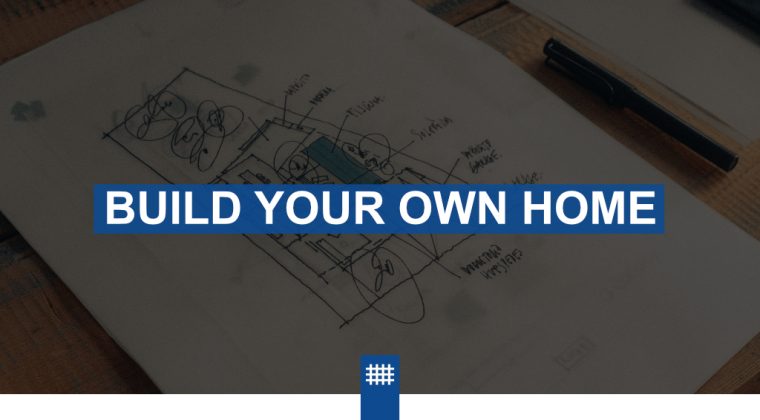Building a home for you and your family is a rather exciting project. Generally, construction can be on the tedious side when it comes to doing it as a profession. Like many other creative yet practical fields, you are always at the whim of what the client would like for their home, office or even apartment buildings for investors. Possessing the skills makes it easier to build your own home but it is not entirely necessary. As long as you are careful and do the due diligence, you will be able to create a home that fits you. Keeping within regulations is of course important and so I would always recommend talking with a professional builder or architect for guidance along the way. So let’s go ahead and discuss how to build your own home.
First Things to consider
When it comes to building your home there are a few things to consider before you even step into the realm of designing the home and getting the correct permits. Building a house might seem like a straightforward task but in reality, there are many different types of housing and then regulations, weather and the property itself to take into account.
Where Will the Home be Built?
First off, you will want to figure out where the home will be built. Perhaps you already have land purchased and you have an idea of where on the property you would like to build. In this case I would suggest having an architect come in for a consultation and find out if that spot is suitable or if you may need to make some adjustments. If you still need to purchase the property it may be worthwhile getting a few options together and then consulting with an architect to select the one with the best building potential.
What are the Regulations Around Building?
One cannot simply just build a home and hope for the best. There are a number of regulations one needs to abide by. This includes understanding the types of buildings allowed, what size you can build and what materials can be used in your particular area. If you consult with an architect before beginning they may be able to point you in the right direction for getting this information. Regulations are sometimes difficult to deal with but just remember that for the most part they are there so that buildings are erected with safety in mind. Once the house is built you will need to have the plumbing and electricity checked by a professional for certification.
What Types of House will You Build?
Now that you have your land ready to go and you are up to date with the building regulations you can decide on what type of home you would like to go for. There are so many options out there. You can spend a lifetime researching the possibilities. In a previous article we spoke about different styles of homes: What is a Residential Property & Building Your Own Home. That article will likely give you some great ideas or a starting point. I would suggest taking a look at what materials are available in your area and work from there. This will help to mitigate the cost of construction.
Do You Know How to Build Your Own Home?
Now, this might be a strange thing to consider but it is important. If you already have construction basics it will be a lot easier for you to begin versus a complete beginner. If you are unfamiliar with building principles I would strongly recommend doing research and speaking to professionals for guidance. Take time to understand the best starting point and fine tune details for specific elements such as laying down the foundation and roofing.
Advice on How to Build Your Own Home
A last bit of advice before jumping into this project would be to get an understanding of the costs involved. Construction costs are generally very high so a steady budget is typically needed to stay on track and not spend too much out of one’s means. Be sure to calculate the costs carefully for the specific type of home you want to build and give yourself a buffer for any unforeseen costs. When it comes to construction there are always costs that pop up.
If you require professional building plans or guidance you can always contact one of our branches for more information.

